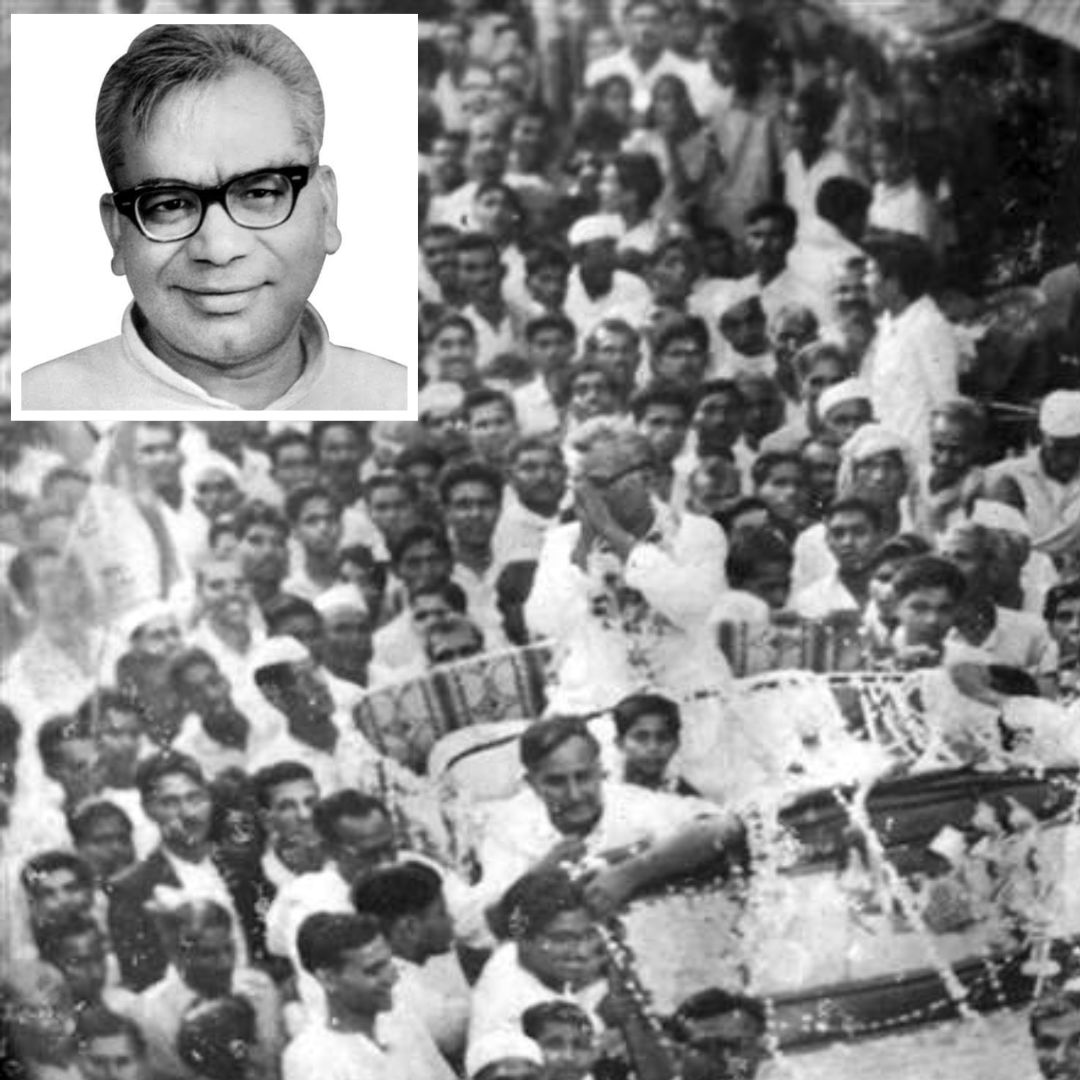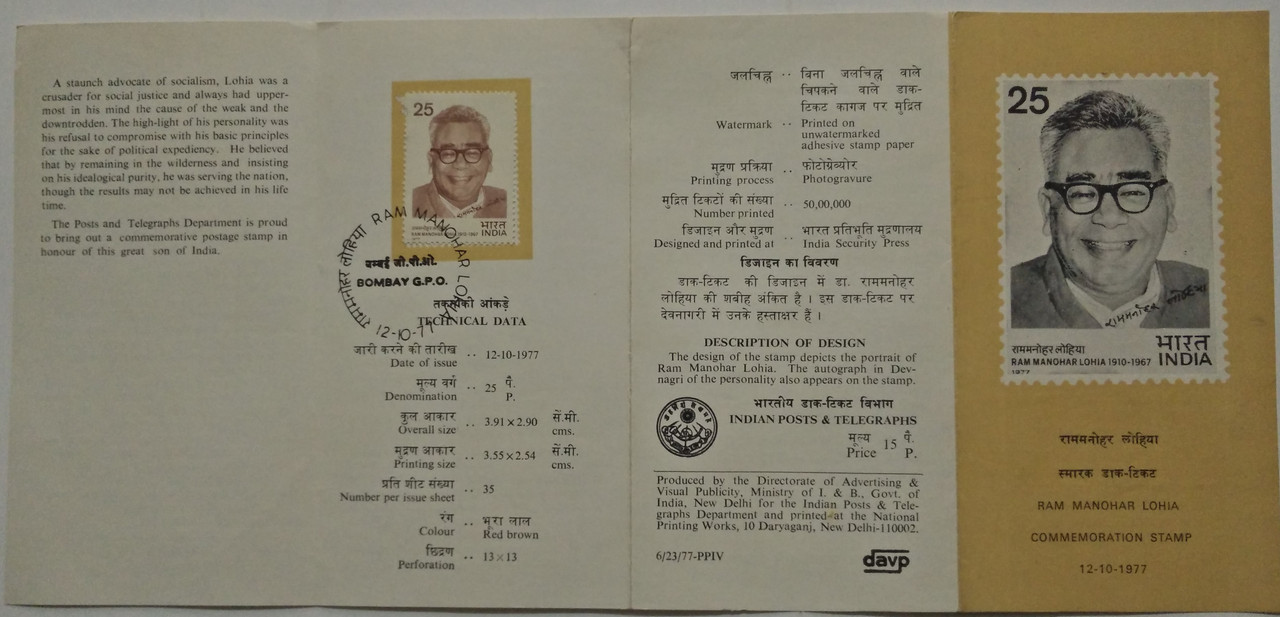
When we reflect on the monumental **freedom struggle** in India, the names of iconic leaders such as Mahatma Gandhi and Jawaharlal Nehru frequently come to the forefront of our minds. However, there is another significant figure who played a crucial role in shaping the political landscape of the nation: **Ram Manohar Lohia**. Born on March 23, 1910, in the town of Akbarpur, India, Lohia was much more than just a politician; he was a **visionary** whose life was dedicated to the pursuit of **social justice** and the promotion of a distinctly Indian form of **socialism**. His commitment to the cause of the marginalized and his innovative ideas about governance and social reform set him apart from his contemporaries. Lohia’s activism and writings inspired countless individuals to join the fight for equality and empowerment. As we explore his life, the challenges he faced, and the profound impact he had on Indian politics, we gain a deeper understanding of his legacy and the principles he championed, which continue to resonate in contemporary society.
Early Life and Education

Roots and Family Background
Ram Manohar Lohia was born into a family of merchants, a background that provided him with a unique perspective on the socio-economic dynamics of India. His early life was profoundly affected by the tragic loss of his mother when he was just two years old, an event that left a lasting imprint on his psyche. Following this loss, he was primarily raised by his grandparents, who played a crucial role in his upbringing. During these formative years, Lohia was significantly influenced by his father’s unwavering commitment to Indian nationalism. This early exposure to the ideals of patriotism and social justice would go on to shape his future endeavors and political philosophy, instilling in him a deep sense of responsibility towards his country and its people.
Academic Pursuits
Lohia’s academic journey commenced at the prestigious Banaras Hindu University, where he laid the foundational stones for his future political career. His time at this institution was marked by a burgeoning interest in social issues and political activism. In 1929, he graduated with a bachelor’s degree from the University of Calcutta, further solidifying his academic credentials. His quest for knowledge took him abroad, where he pursued a doctorate at the University of Berlin, completing it in 1932. His studies there focused on economics and politics, exposing him to a variety of political ideologies, with a particular emphasis on socialism. This exposure not only broadened his intellectual horizons but also equipped him with the theoretical tools necessary to analyze and address the pressing social issues facing India at the time. Lohia’s academic pursuits were instrumental in shaping his vision for a more equitable society.
Political Awakening

Joining the Congress Socialist Party
In the year 1934, the political landscape of India was undergoing significant changes, and it was during this time that Ram Manohar Lohia became actively engaged with the **Congress Socialist Party (CSP)**. This faction represented a leftist ideology within the broader Indian National Congress, advocating for social justice and economic equality. Lohia’s involvement was not merely passive; he took on the crucial role of editor for the CSP’s weekly journal, which provided him with a platform to articulate his views and promote socialist principles. Through his writings, he sought to inspire and mobilize support for the party’s agenda, emphasizing the importance of social reform and the need for a more equitable society. However, Lohia was known for his fearless and often controversial stance on various issues, which set him apart from many of his contemporaries.
Opposition to British Rule
As the global conflict of World War II began to unfold, Lohia’s political convictions led him to strongly oppose India’s involvement alongside the British Empire. He believed that supporting the British war effort would undermine India’s struggle for independence and compromise the nation’s sovereignty. His outspoken criticism of British colonial rule did not go unnoticed, and in 1939, he was arrested for making anti-British remarks. This was not an isolated incident; in 1940, he faced further repercussions for his activism, resulting in an **18-month imprisonment**. Rather than dampening his spirit, this period of incarceration only served to fortify his determination to fight against colonial oppression and advocate for India’s freedom. Lohia emerged from prison with an even greater commitment to the cause of independence, ready to challenge the status quo and inspire others to join the struggle for a free and just India.
The Quit India Movement

Mobilizing the Masses
The **Quit India Movement**, which emerged in 1942, marked a significant turning point in India’s struggle for independence. Spearheaded by the iconic leader Mahatma Gandhi, this movement saw the active involvement of prominent figures such as Ram Manohar Lohia and other leaders from the Congress Socialist Party, including **Jaya Prakash Narayan**. Together, they worked tirelessly to galvanize support from various underground networks, effectively mobilizing the masses to rise against British colonial rule. Their collective efforts were instrumental in uniting people from diverse backgrounds, showcasing Lohia’s remarkable ability to inspire and lead a movement that resonated deeply with the aspirations of the Indian populace for freedom and self-determination.
Imprisonment and Resilience
As a direct consequence of his unwavering commitment to the cause of independence, Lohia was imprisoned once again from 1944 to 1946 due to his involvement in resistance activities. However, rather than succumbing to despair or allowing these harsh experiences to diminish his resolve, Lohia emerged from his time in prison with an even stronger passion for **social reform** and justice. His resilience during these challenging times not only reinforced his dedication to the fight for freedom but also inspired countless others to continue the struggle for a more equitable and just society. Lohia’s experiences during imprisonment became a testament to his unwavering spirit and commitment to the ideals of democracy and social justice.
Post-Independence Politics

Conflict with Nehru
After India gained independence in 1947, Lohia continued to be an active political figure. However, his relationship with Prime Minister **Jawaharlal Nehru** was fraught with tension. Disagreements on various issues led Lohia and other CSP members to leave the Congress in 1948.
Formation of the Praja Socialist Party
In 1952, Lohia became a member of the newly formed **Praja Socialist Party**. He briefly served as general secretary but resigned in 1955 due to internal conflicts. This experience didn’t deter him; instead, it motivated him to establish a new **Socialist Party** later that year.
Ideologies and Reforms

Advocating for Social Justice
As the chairman of the new Socialist Party and editor of its journal, **Mankind**, Lohia became a powerful voice for various **sociopolitical reforms**. He was a **spellbinding orator**, advocating for the abolition of the **caste system**, the adoption of **Hindi** as India’s national language, and stronger protections for **civil liberties**.
Critique of Government Policies
In 1963, Lohia was elected to the **Lok Sabha**, the lower house of Parliament. Here, he was known for his sharp criticism of government policies, often challenging the status quo. His progressive views resonated with many Indians, inspiring a generation of activists and leaders.
Legacy of Ram Manohar Lohia

A Lasting Influence
Ram Manohar Lohia passed away on October 12, 1967, but his legacy lives on. His ideas about **socialism**, **equality**, and **justice** continue to inspire political discourse in India. He is remembered not just as a politician but as a **champion of the marginalized**.
Commemoration and Recognition
Today, various institutions, roads, and parks are named after Lohia, honoring his contributions to Indian society. His life serves as a reminder of the power of **activism** and the importance of fighting for what is right.

Ram Manohar Lohia was more than just a politician; he was a **visionary** who fought tirelessly for a better India. His commitment to **social justice**, his critiques of government policies, and his advocacy for the marginalized make him a significant figure in Indian history. As we reflect on his life, we are reminded that the fight for equality and justice is ongoing, and it is up to us to carry forward his legacy.
Table of Key Events in Lohia’s Life

| Year | Event |
|---|---|
| 1910 | Born in Akbarpur, India |
| 1929 | Earned Bachelor’s Degree from University of Calcutta |
| 1932 | Obtained Doctorate from University of Berlin |
| 1934 | Joined Congress Socialist Party |
| 1942 | Active in Quit India Movement |
| 1947 | India gains independence |
| 1952 | Joined Praja Socialist Party |
| 1963 | Elected to Lok Sabha |
| 1967 | Died in New Delhi |

